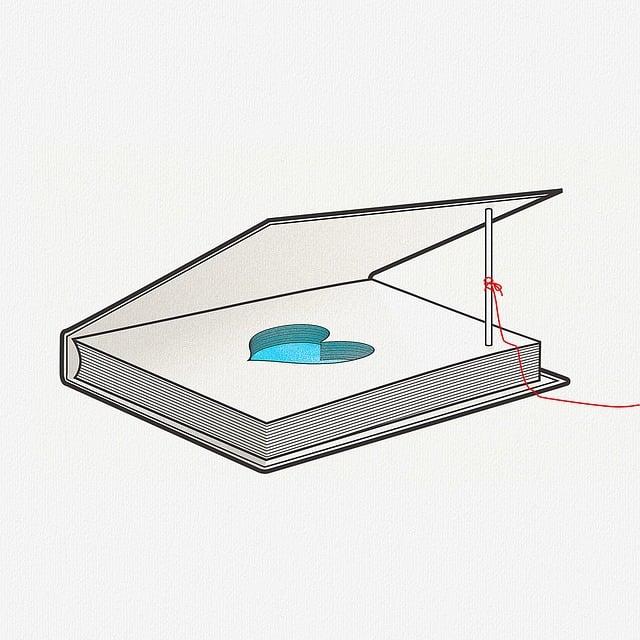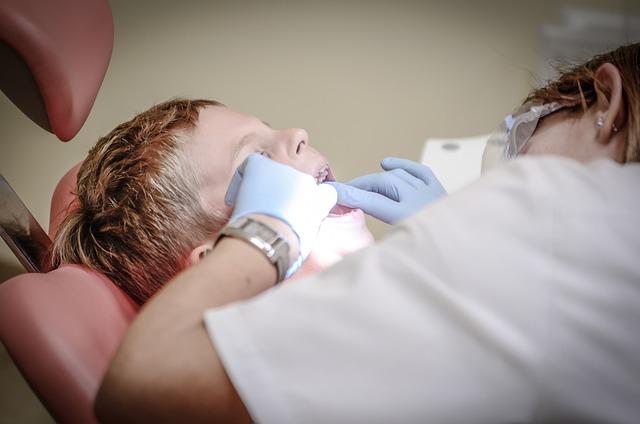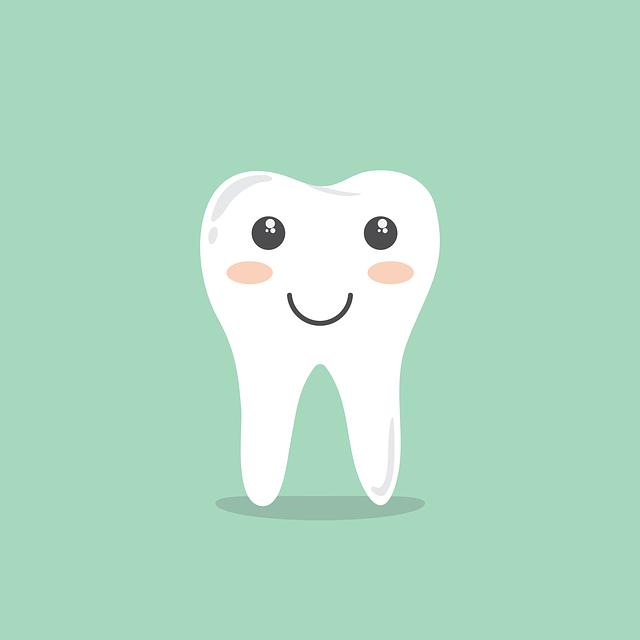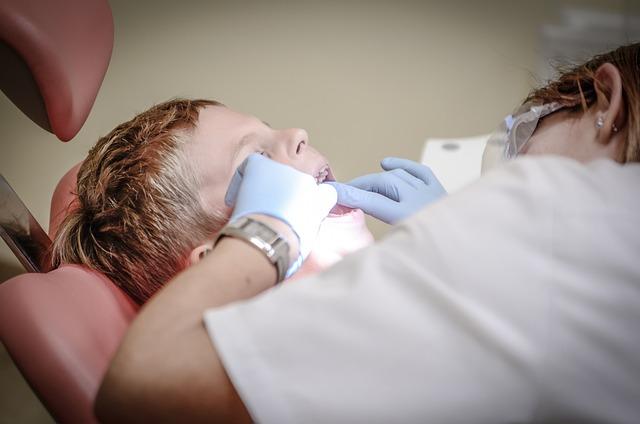Can You Brush Teeth with Salt: Best Practices
Are you looking for a natural and cost-effective way to maintain your oral hygiene? Look no further than your kitchen pantry! Salt, a common household ingredient, has been used for centuries as a natural remedy for various ailments. But can you brush your teeth with salt? In this article, we will explore the best practices and benefits of using salt as a toothpaste alternative. So, get ready to uncover the secrets of this age-old oral care technique, backed by confident knowledge and expertise.
1. Understanding the Use of Salt in Oral Care: Exploring the Viability of Brushing Teeth with Salt
Many individuals are curious about alternative methods for maintaining oral hygiene, and one such method that has gained attention is brushing teeth with salt. While traditional toothpaste remains the most widely recommended option, exploring the viability of salt as an oral care ingredient can provide valuable insights. Here, we delve into the potential benefits and drawbacks of using salt for brushing teeth, allowing you to make an informed decision.
Benefits of Brushing Teeth with Salt:
- Salt possesses natural antibacterial properties, which can help reduce the number of harmful bacteria in the mouth.
- Brushing with salt can aid in removing surface stains and discoloration, resulting in a brighter smile.
- Some individuals find that salt can help alleviate minor gum irritations and promote healthier gums.
Drawbacks of Brushing Teeth with Salt:
- Excessive use of salt in oral care may lead to enamel erosion over time, as salt is abrasive in nature.
- Salt may not contain the essential ingredients found in toothpaste, such as fluoride, which helps prevent tooth decay.
- Individuals with specific dental conditions, such as sensitive teeth or gum disease, should consult with their dentist before incorporating salt into their oral care routine.
While brushing teeth with salt can offer some benefits, it is crucial to consider the potential drawbacks and consult with a dental professional for personalized advice. Remember, maintaining a consistent oral care routine, including regular brushing, flossing, and dental check-ups, is essential for optimal dental health.

2. The Science Behind Salt as an Alternative Toothpaste: Evaluating its Effectiveness for Dental Hygiene
As the search for natural and effective dental hygiene products continues, salt has emerged as a potential alternative to traditional toothpaste. But what does science have to say about its effectiveness? Let’s delve into the research and understand the benefits and limitations of using salt as a toothpaste substitute.
The Benefits:
- Salt, specifically sea salt or Himalayan salt, contains minerals like calcium, magnesium, and potassium that can promote dental health.
- Its abrasive properties help remove plaque, stains, and food debris from the teeth, contributing to a cleaner and brighter smile.
- Salt possesses antibacterial properties, which can reduce the growth of harmful bacteria in the mouth, ultimately aiding in preventing tooth decay and gum disease.
The Limitations:
- While salt can be effective in maintaining oral hygiene, it cannot replace the benefits of fluoride toothpaste in preventing cavities.
- Using salt as a toothpaste may be harsh on tooth enamel if used excessively or with vigorous brushing, potentially leading to tooth sensitivity.
- It is important to note that salt cannot treat or cure existing dental problems and should be used in conjunction with regular dental care.
Overall, the science behind salt as an alternative toothpaste shows promising results in terms of improving dental hygiene. However, it is crucial to consult with a dental professional to determine its suitability for individual oral health needs.

3. Pros and Cons of Brushing Teeth with Salt: Weighing the Benefits and Potential Risks
Brushing teeth with salt has been a practice that has gained popularity in recent years. While it may offer some benefits, it is important to carefully consider both the advantages and potential risks before incorporating it into your oral care routine.
Pros:
- Natural Antibacterial Properties: Salt has natural antibacterial properties, which may help reduce harmful bacteria in the mouth and improve overall oral hygiene.
- Whitening Effect: Some people claim that brushing with salt can help whiten teeth by removing surface stains, giving you a brighter smile.
- Cost-Effective: Salt is an inexpensive ingredient that is readily available, making it an affordable option for those who want to explore alternative dental care methods.
Cons:
- Abrasive Nature: Salt is abrasive and can potentially damage tooth enamel if used incorrectly or excessively. It is crucial to use salt in moderation and with caution to prevent any harm to your teeth and gums.
- Salt Sensitivity: Some individuals may be sensitive to the taste or texture of salt, making it uncomfortable or unpleasant to use as a toothpaste substitute.
- Lack of Fluoride: Salt does not contain fluoride, a mineral essential for strengthening tooth enamel and preventing tooth decay. It is important to ensure you are still receiving adequate fluoride protection if you choose to brush with salt.
Before incorporating salt into your oral care routine, it is advisable to consult with your dentist or dental professional. They can provide guidance based on your specific dental needs and help you determine if brushing with salt is a suitable option for you.

4. Best Practices for Using Salt in Dental Care: Tips for Incorporating Salt into your Oral Hygiene Routine
Salt can be a beneficial addition to your oral hygiene routine, as it has several properties that promote dental health. Here are some best practices for using salt effectively in your dental care:
1. Saltwater rinses: Mixing half a teaspoon of salt in warm water creates a simple yet effective mouth rinse. Gargling with this solution can help reduce inflammation, soothe gum irritations, and cleanse the oral cavity. Remember to spit out the solution after swishing it around in your mouth for about 30 seconds.
2. Salt-based toothpaste: Look for toothpaste that contains salt as an ingredient. Salt helps to remove plaque and bacteria, reducing the risk of tooth decay and gum disease. Brushing your teeth with a salt-based toothpaste can provide an extra level of protection against oral health issues.
3. Salt as a natural remedy: Salt has antimicrobial properties that can help fight bacteria in the mouth. If you have a minor toothache or mouth sore, consider gently rubbing a small amount of salt directly onto the affected area. This can help alleviate discomfort and promote healing.
Remember, while salt can be beneficial for oral hygiene, it is important to use it in moderation and in combination with other dental care practices such as regular brushing, flossing, and professional cleanings. Always consult with your dentist for personalized advice on how to incorporate salt into your oral hygiene routine.
5. How to Prepare a Salt Toothpaste at Home: DIY Recipes for a Natural and Affordable Oral Care Option
Salt toothpaste is a fantastic natural and affordable option for maintaining oral hygiene. By making your own DIY salt toothpaste at home, you can ensure that you are using a product free from harmful chemicals and additives. Not only is it easy to prepare, but it also provides numerous benefits for your teeth and gums.
To prepare a salt toothpaste, you will need a few simple ingredients that are easily available. Here are a couple of DIY recipes to get you started:
1. Basic Salt Toothpaste:
– Mix 2 tablespoons of fine sea salt with 4 tablespoons of baking soda in a bowl.
– Gradually add enough water to form a smooth paste.
– Optional: Add a few drops of peppermint essential oil for a refreshing taste.
– Store the toothpaste in a clean, airtight container.
2. Coconut Oil Salt Toothpaste:
- Combine 2 tablespoons of fine sea salt with 2 tablespoons of baking soda in a bowl.
- Add 2 tablespoons of coconut oil and mix well until it forms a paste.
– Optional: Add a few drops of your preferred essential oil for flavor.
– Transfer the toothpaste into a clean, airtight container.
Using salt toothpaste offers several benefits. Salt acts as a natural antibacterial agent, helping to reduce plaque and prevent gum disease. Additionally, it can neutralize acidic conditions in the mouth and promote remineralization of tooth enamel. By opting for a homemade salt toothpaste, you are prioritizing your oral health while saving money and avoiding potentially harmful ingredients found in commercial toothpaste options.
6. Salt vs. Traditional Toothpaste: Comparing the Differences in Cleaning Power and Long-Term Effects
Salt and traditional toothpaste are two popular options for maintaining oral hygiene. While both serve the purpose of cleaning teeth, they differ in terms of their cleaning power and long-term effects. Let’s take a closer look at the differences between these two options:
Cleaning Power:
- Salt: Salt has been used for centuries as a natural cleanser due to its abrasive nature. When used as a toothpaste, salt can help remove plaque and stains from the teeth, leaving them looking brighter and cleaner.
- Traditional Toothpaste: Traditional toothpaste contains various ingredients such as fluoride, abrasives, and detergents. These components work together to effectively clean teeth, remove plaque, fight cavities, and freshen breath.
Long-Term Effects:
- Salt: Using salt as a toothpaste can have some potential long-term effects. The abrasive nature of salt may lead to enamel erosion if used excessively or with too much force. Additionally, salt does not contain fluoride, which is crucial for preventing tooth decay.
- Traditional Toothpaste: Traditional toothpaste, especially those with fluoride, provide long-term benefits for oral health. Fluoride helps strengthen tooth enamel, making it more resistant to tooth decay. It also aids in remineralization, which can repair early signs of tooth decay.
When deciding between salt and traditional toothpaste, it is essential to consider your specific dental needs and consult with a dentist. While salt can be a natural and effective cleanser, it may not provide the same level of protection against tooth decay as traditional toothpaste. Ultimately, maintaining a consistent oral hygiene routine, including brushing, flossing, and regular dental check-ups, is crucial for optimal dental health.
7. Expert Opinions on Brushing Teeth with Salt: Insights from Dentists and Oral Health Professionals
When it comes to the practice of brushing teeth with salt, there are varying opinions among dentists and oral health professionals. While some experts believe that salt can have certain benefits for oral health, others caution against its use as a primary oral hygiene method. Here are some key insights from these professionals:
1. Potential benefits:
- Some dentists suggest that salt can help to neutralize acidity in the mouth, which can be beneficial in preventing tooth decay and gum disease.
- Salt’s antibacterial properties may also help to reduce the presence of harmful bacteria in the mouth, promoting a healthier oral environment.
- In certain cases, saltwater rinses can be recommended by dentists to alleviate temporary mouth sores or gum inflammation.
2. Potential risks:
- While salt may have some benefits, it should not replace regular toothpaste and toothbrush as the primary means of oral hygiene. Dentists emphasize that brushing with toothpaste is essential for removing plaque and maintaining good oral health.
- Excessive use of salt in oral care can contribute to the erosion of tooth enamel, leading to increased sensitivity and potential tooth damage.
- Individuals with high blood pressure or other medical conditions should consult with their dentist before incorporating salt into their oral care routine, as it may have adverse effects.
3. Expert recommendations:
- Overall, it is best to consult with a dentist or oral health professional before using salt as a regular part of your oral care routine. They can provide personalized advice based on your specific dental needs.
- While salt may have some benefits, it is important to remember that maintaining proper oral hygiene habits, such as brushing twice a day with fluoride toothpaste and flossing daily, is crucial for optimal oral health.
- Dentists and oral health professionals recommend regular dental check-ups and cleanings to ensure comprehensive oral care and address any potential issues.
8. Potential Side Effects of Brushing Teeth with Salt: Precautions to Consider for Optimal Oral Health
When it comes to brushing your teeth with salt, it is important to be aware of the potential side effects and take necessary precautions for optimal oral health. While salt can be an effective natural remedy for dental care, there are a few things to consider:
- Tooth Sensitivity: Brushing with salt may cause tooth sensitivity in some individuals. This is because salt is abrasive and can wear down the tooth enamel over time. If you already have sensitive teeth, it is advisable to consult with your dentist before incorporating salt into your oral hygiene routine.
- Gum Irritation: Salt can be harsh on the gums, leading to irritation and inflammation. If you experience any discomfort or notice redness in your gums after brushing with salt, it is recommended to discontinue the practice and seek professional advice.
- Excessive Sodium Intake: Salt contains sodium, and excessive consumption of sodium can have negative effects on overall health. If you are already on a high-sodium diet or have specific health conditions that require you to limit your sodium intake, it is best to avoid using salt for brushing your teeth.
While brushing with salt can be beneficial for some, it is important to be cautious and consider these potential side effects. It is always recommended to consult with your dentist before making any major changes to your oral hygiene routine to ensure it aligns with your specific oral health needs.
9. Frequently Asked Questions about Salt as a Dental Hygiene Aid: Addressing Common Concerns and Misconceptions
Here, we aim to address some frequently asked questions and clear up any concerns or misconceptions you may have about using salt as a dental hygiene aid.
1. Is using salt safe for my teeth?
Yes, using salt as a dental hygiene aid is generally safe for your teeth. Saltwater rinses can help reduce inflammation and promote healing in the mouth. However, it’s important to use the right concentration of saltwater solution and not to overdo it, as excessive use may lead to dry mouth or irritation.
2. Will salt damage my tooth enamel?
No, when used in moderation, salt should not damage your tooth enamel. Saltwater rinses are typically gentle and can even help remineralize your teeth. However, it’s important to remember that salt is abrasive, so using excessive force when brushing with salt may potentially wear down your enamel over time. It’s always best to consult with your dentist for personalized advice on the appropriate use of salt as a dental hygiene aid.
3. Can salt replace toothpaste?
No, salt cannot fully replace toothpaste. While salt can have some antibacterial properties and help freshen breath, it lacks the necessary fluoride content to effectively prevent tooth decay. It’s crucial to use fluoride toothpaste to protect your teeth against cavities. However, incorporating salt as a supplement to your oral hygiene routine, such as using it as a mouthwash or gargling with saltwater, can be beneficial.
10. Making an Informed Decision: Is Brushing Teeth with Salt Right for You? A Guide to Personalizing Your Oral Care Routine
When it comes to oral care, there are countless options available to personalize your routine. One particular method that has gained some attention is brushing teeth with salt. While some people swear by its benefits, it’s important to make an informed decision before incorporating it into your oral care routine.
Before trying salt as a teeth cleaning agent, it’s crucial to understand both its potential benefits and risks. Here are a few points to consider:
- Natural cleansing properties: Salt has been used for centuries as a natural cleansing agent due to its antibacterial properties. It can help remove plaque, reduce oral bacteria, and minimize bad breath.
- Potential tooth enamel damage: However, it’s important to be cautious as excessive use of salt can potentially damage tooth enamel over time. It’s recommended to consult with your dentist before incorporating salt into your routine.
- Individual sensitivity: Every individual’s oral health is unique, and what works for one person may not work for another. It’s always best to personalize your oral care routine based on your specific needs and consult with a dental professional.
In conclusion, brushing teeth with salt can have its benefits, but it’s essential to consider the potential risks and consult with a dental professional before making a decision. Personalizing your oral care routine is key to maintaining a healthy smile, so take the time to research and find what works best for you.
Frequently Asked Questions
Q: Can you brush your teeth with salt instead of toothpaste?
A: Yes, you can brush your teeth with salt as an alternative to toothpaste.
Q: Is brushing teeth with salt effective?
A: Brushing your teeth with salt can be effective in certain situations.
Q: How does brushing teeth with salt work?
A: Salt has antibacterial properties that help kill bacteria in the mouth, reducing the risk of tooth decay and gum disease.
Q: What are the benefits of brushing teeth with salt?
A: Brushing with salt can help remove stains, fight bad breath, and promote oral health by reducing bacteria in the mouth.
Q: Are there any downsides to brushing teeth with salt?
A: Brushing with salt can be abrasive and might damage tooth enamel if used too vigorously or frequently. It is important to use it sparingly and in moderation.
Q: Can salt be used as a toothpaste substitute in the long term?
A: While salt can be used occasionally as a toothpaste substitute, it is not recommended for long-term use. Regular toothpaste is formulated to provide additional benefits for overall oral health.
Q: How should one brush their teeth with salt?
A: Wet your toothbrush, dip it in a small amount of salt, and brush your teeth as you would with toothpaste. Rinse thoroughly afterward.
Q: Can anyone brush their teeth with salt?
A: Most people can safely brush their teeth with salt. However, individuals with certain dental conditions, such as sensitive teeth or gum problems, should consult their dentist before using salt as a toothpaste substitute.
Q: Are there any alternative uses for salt in dental care?
A: Saltwater rinses can be used to soothe mouth sores, reduce inflammation, and promote healing. Mixing salt with warm water and using it as a mouthwash can provide some benefits.
Q: What is the bottom line when it comes to brushing teeth with salt?
A: Brushing your teeth with salt can be an effective and natural alternative to toothpaste in certain situations. However, it is important to use it sparingly and consult your dentist if you have any concerns or specific dental conditions.
Key Takeaways
In conclusion, brushing teeth with salt can indeed be an effective practice when done correctly. Here are the key takeaways from our discussion:
1. Salt is a natural antibacterial agent that can help kill harmful bacteria in the mouth and prevent tooth decay and gum disease.
2. However, it is important to use salt in moderation and not as a replacement for regular toothpaste. The high concentration of salt can be harsh on the teeth and gums if used excessively.
3. When using salt for brushing, it is recommended to dissolve it in warm water to create a saline solution. This helps to ensure that the salt is evenly distributed and reduces the risk of abrasive damage.
4. Always use a soft-bristled toothbrush to avoid causing any harm to the tooth enamel or gums. Gently brush in circular motions, paying attention to all areas of the mouth.
5. It is advisable to consult with a dentist before incorporating salt brushing into your oral hygiene routine, especially if you have any pre-existing dental conditions or sensitivities.
Remember, maintaining good oral hygiene goes beyond just brushing with salt. Regular visits to the dentist, flossing, and a balanced diet are all crucial components of a healthy smile.






